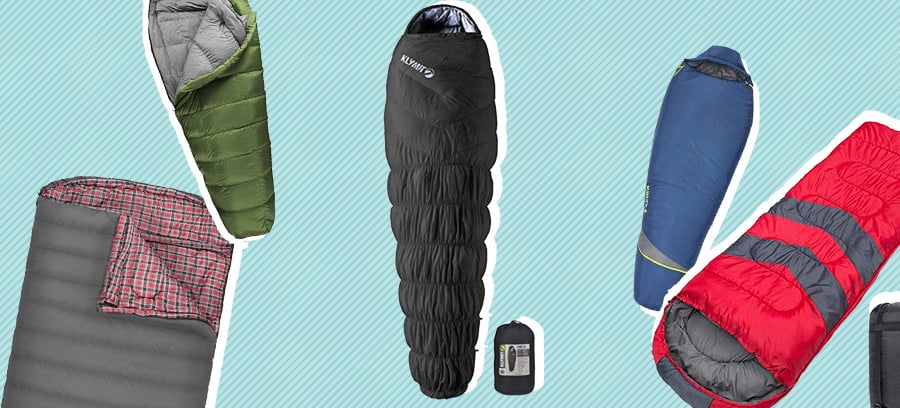If you’re new to the world of sleeping bags, let us offer an introduction: There are a ton of options to choose from, and they all vary widely in terms of materials, design, weight, cost, and functionality. That means finding the right one for you requires clarity around your intended use for the bag, the weather you’ll be facing, your budget, and some other factors.
If you’re in need of a highly technical bag (say, for mountaineering or rugged backpacking), then head to an outfitter that specializes in outdoor gear. But if you’re looking for a bag to keep you cozy on a beginner backpacking trip, while car camping, or while sleeping under the stars in your backyard, then you’ve come to the right place. This roundup should offer an array of options to suit every entry-level to intermediate camper’s needs.

[wpcd_coupons_loop count=7 cat=’1070′ temp=’tabledata’]
How We Picked
The world of sleeping bags includes everything from basic bags hastily purchased for a Girl Scouts campout to highly technical gear designed to keep adventurers alive in the most extreme weather conditions. We’re more focused on the “Scouts” side of that spectrum (though you will find some semi-technical bags on this list). To help people choose the right entry-level sleeping bag for their needs, we considered the following.
Cost
When you start researching sleeping bags, you’ll notice their cost can range from around $20 to well over $500. “You get what you pay for” almost always holds true: Cheaper bags are more likely to feature lower quality materials and to be less durable, while more expensive bags will probably use higher quality materials and boast greater durability and technical specs.
That said, there’s no reason to spend hundreds of dollars on a bag that you’re going to use for short car camping trips or backyard camping. Your intended use for the bag will help you determine just how much quality and durability actually matter.
Functionality
There are a lot of reasons to use a sleeping bag, and they all require slightly different specs. So we included bags with a range of functions to suit different needs.
Looking to cuddle up with your partner under the stars? Check out the couples options. Snoozing outside in the Florida heat? Look for a warm-weather bag. Heading into the mountains for a campout? Don’t go up there without a cold-weather bag, even in the summer! And if you’re planning to backpack, choose a lightweight bag that won’t weigh you down.
Materials
The materials in a sleeping bag can have a big impact on its function and weather-proofing. For instance, real down is very insulating but gets heavy when wet. Synthetic down options have come a long way and can perform well in a variety of conditions. Some bags come with water-resistant linings, and others don’t. We included an array of materials so you can choose what suits you best.
Weather-proofing
Some bags are optimized for cold temps, while others are only suitable for warmer climes. Some bags feature waterproofing or water-resistance, and others don’t. You’ll want to look for weather-proofing that’s appropriate to where you’re planning to camp. We included a variety of options so you can find what works for you.
And speaking of temperature: Note that the rating for a bag doesn’t guarantee you’ll be comfortable at the number in question; it usually just means the bag will help you keep you alive in those temps. So if a bag is rated to 15 degrees Fahrenheit, you probably won’t be warm at that temp unless you add a liner, a ground pad, some layers, and so on.
Sleepopolis Buying Tips
To find the best sleeping bag for your needs, consider the following:
- Where are you planning to camp? This will tell you whether you need a bag that’s suitable for cold or warm temps (or both). It will also let you know whether you want to prioritize water resistance.
- How will you transport your sleeping bag? If you’re planning to backpack, then it’s essential to look for a lightweight bag (or pay the price while backpacking!). If you’re car camping, then weight won’t matter so much — but it could dictate a size constraint if you’re short on car space.
- Who are you camping with? If you want to cuddle up with a partner or you know your kiddo is liable to crawl into your bag, consider a couples option (or one that’s wider than a standard mummy bag). If you’re going to be squeezed into a backpacking tent beside a friend, then a narrower mummy bag might be most space-efficient.
All the research in the world doesn’t compare to taking a bag into the wild and giving it a try. So consider buying from a brand with a solid return policy so you can test out a bag before committing to it long-term. When you find the right fit, you’ll be sleeping easy.


























